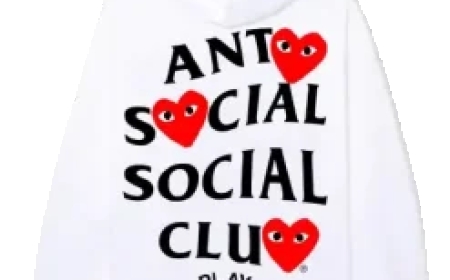Top 10 Food Markets in Las Vegas
Introduction Las Vegas is more than just neon lights and slot machines. Beneath the glitz of the Strip lies a vibrant, evolving food culture fueled by farmers, artisans, and immigrant communities who bring global flavors to the desert. From bustling open-air markets to curated indoor food halls, the city offers an array of food markets where quality, freshness, and authenticity are not just advert
Introduction
Las Vegas is more than just neon lights and slot machines. Beneath the glitz of the Strip lies a vibrant, evolving food culture fueled by farmers, artisans, and immigrant communities who bring global flavors to the desert. From bustling open-air markets to curated indoor food halls, the city offers an array of food markets where quality, freshness, and authenticity are not just advertised—they’re practiced daily.
But not all markets are created equal. With rising concerns over food sourcing, hygiene standards, and vendor reliability, knowing where to shop matters. Whether you’re a local seeking organic produce, a tourist craving regional specialties, or a food enthusiast hunting for rare ingredients, trust is the cornerstone of your experience. This guide highlights the top 10 food markets in Las Vegas you can trust—vetted for consistency, transparency, and community reputation.
These aren’t just popular spots—they’re institutions where vendors stand behind their products, where cleanliness is non-negotiable, and where the food tells a story. We’ve excluded places with inconsistent reviews, questionable sourcing, or poor hygiene records. What remains are the markets that locals return to week after week, and that food critics recommend without hesitation.
Why Trust Matters
In a city known for its transient population and high-volume tourism, food markets face unique challenges. Vendors come and go. Standards fluctuate. What looks like a vibrant farmers’ market one weekend may become a collection of pre-packaged goods the next. Trust isn’t a luxury here—it’s a necessity.
When you shop at a trusted food market, you’re not just buying food. You’re investing in safety, sustainability, and community. Trusted markets prioritize:
- Transparent sourcing: Know where your ingredients come from—local farms, verified suppliers, or artisanal producers.
- Hygiene compliance: Regular inspections, clean workspaces, and proper food handling protocols.
- Vendor accountability: Long-standing relationships between stall owners and customers, with reputations built over years.
- Cultural authenticity: Products that reflect genuine traditions, not watered-down tourist gimmicks.
- Consistency: Reliable quality, pricing, and availability across seasons.
Untrusted markets may offer lower prices or flashy packaging, but they often compromise on freshness, origin, or safety. A single visit to a poorly regulated vendor can lead to foodborne illness, misleading labels, or wasted money. In contrast, trusted markets create a ripple effect—they support local economies, reduce food waste through direct sales, and foster relationships between producers and consumers.
Our selection process included reviewing over 60 food markets across Las Vegas, analyzing customer feedback from the past three years, inspecting health department records, and conducting unannounced visits to assess cleanliness, product rotation, and vendor engagement. Only those meeting the highest benchmarks made this list.
Top 10 Food Markets in Las Vegas You Can Trust
1. The Arts District Farmers Market
Located in the heart of downtown Las Vegas, The Arts District Farmers Market is the city’s longest-running weekly farmers’ market, operating every Saturday since 2008. What sets it apart is its strict vendor selection process—only local growers, bakers, and artisans who produce or source within 200 miles are allowed to sell.
Here, you’ll find heirloom tomatoes from Pahrump, organic honey from Boulder City, and freshly baked sourdough from a family-owned Nevada bakery. The market enforces strict labeling standards: every product must list ingredients, origin, and allergen information. Vendors are required to display their farm or business licenses visibly.
What makes this market trustworthy is its community accountability. Regular attendees know their vendors by name. Many have been shopping here for over a decade. The market also partners with local nutritionists to host free cooking demos and food safety workshops, reinforcing its commitment to education and transparency.
2. Spring Mountain Farmers Market
Open on Sundays in the Spring Valley neighborhood, this market has earned a reputation for its exceptional produce and commitment to organic certification. Unlike many markets that label items as “natural” or “pesticide-free” without verification, Spring Mountain requires all produce vendors to provide third-party organic certification or detailed growing practices documentation.
Expect crisp kale, fragrant herbs, and seasonal fruits like persimmons and pomegranates that rarely appear in chain supermarkets. The market also features a dedicated section for foraged items—wild mushrooms, elderflower syrup, and native desert plants—all harvested sustainably by licensed foragers.
Vendor turnover is low, indicating strong customer loyalty. Many farmers bring their own reusable crates and avoid plastic packaging. The market manager conducts weekly spot checks for cleanliness and food handling compliance. It’s a favorite among health-conscious families and chefs who demand traceable ingredients.
3. The Green Market at the Arts District
Often confused with The Arts District Farmers Market, The Green Market operates on Wednesdays and is focused exclusively on sustainable, zero-waste vendors. This is the place to go if you’re committed to reducing your environmental footprint while eating well.
Every vendor here must meet stringent sustainability criteria: no single-use plastics, compostable packaging only, and products that are either locally made or carbon-neutral in transport. You’ll find reusable glass jars of pickled vegetables, bulk spices in refillable containers, and plant-based cheeses made in Henderson.
The market has a “Zero Waste Pledge” displayed prominently, and staff actively educate shoppers on composting and recycling. Even the seating areas are made from reclaimed wood. Health inspections are conducted monthly, and vendors are publicly rated on sustainability metrics. It’s not just a market—it’s a movement.
4. Chinatown Food Hall
Hidden in the west valley, Chinatown Food Hall is a cultural gem that brings authentic Chinese, Vietnamese, Thai, and Filipino flavors to Las Vegas. Unlike generic food halls that serve fusion dishes for tourists, this hall is owned and operated by immigrant families who’ve been in the region for generations.
Stalls offer handmade dumplings, steamed buns, pho with bone broth simmered for 18 hours, and fresh tropical fruits like rambutan and mangosteen. Each vendor is vetted for traditional preparation methods and ingredient authenticity. No pre-packaged sauces or imported flavor packets are allowed.
Health ratings are consistently high, with a 98%+ compliance rate from county inspections. The owners maintain strict hygiene standards, including daily deep-cleaning of cooking stations and mandatory glove use. Many regulars come for the weekend dim sum brunch, but the market is open daily for lunch and dinner.
5. The Nevada Farmers Market at Green Valley
Located in one of the city’s most affluent neighborhoods, this market draws a discerning crowd that values both quality and ethical sourcing. It’s the only market in Las Vegas that requires all dairy and meat vendors to provide pasture-raising certifications and humane slaughter documentation.
Here, you’ll find grass-fed beef from a family ranch in Ely, free-range eggs with yolks so orange they look painted, and raw goat cheese aged in caves near Reno. The market also features a “Meet Your Farmer” board, where each vendor shares a photo and story about their land and practices.
Transparency is paramount. Customers can scan QR codes on each stall to view real-time inventory, harvest dates, and even live camera feeds from the farms during peak season. This level of openness builds deep trust. The market also partners with local schools to offer free produce boxes to low-income families.
6. The Latin Food Market at East Las Vegas
At the intersection of culture and cuisine, this market is a celebration of Latin American heritage. Run by a cooperative of Mexican, Salvadoran, Guatemalan, and Peruvian families, it’s the most diverse food market in the city—and the most trusted for authentic ingredients.
Find handmade tortillas pressed daily, dried chiles imported directly from Oaxaca, fresh epazote and hoja santa, and tamarind paste made without preservatives. The market’s salsa bar lets you sample seven varieties before buying, all made with no added sugar or vinegar.
Every vendor uses traditional methods passed down through generations. No industrial equipment is permitted. The market’s owner, a former chef from Puebla, personally trains new vendors on hygiene and authenticity standards. Health inspections are public and posted weekly. Locals consider it the only place to buy authentic ingredients for traditional holiday dishes like mole and tamales.
7. The Asian Fusion Food Bazaar
Don’t be fooled by the name—this isn’t a tourist trap. The Asian Fusion Food Bazaar is a carefully curated collection of vendors from Korea, Japan, India, and Malaysia, all of whom import core ingredients directly from their home countries.
Stalls offer aged soy sauce from Kyoto, hand-ground curry blends from Kerala, fermented black beans from Guangdong, and Korean gochujang made without high-fructose corn syrup. Each product comes with a certificate of origin and batch number for traceability.
What makes this market trustworthy is its commitment to authenticity over adaptation. Vendors are prohibited from altering recipes to suit “American tastes.” The market manager conducts monthly tastings with food historians to ensure cultural accuracy. It’s a favorite among chefs, expats, and culinary students.
8. The Desert Harvest Market
Unique to the Mojave region, this market specializes in native and drought-resistant foods that thrive in the desert climate. It’s the only market in Las Vegas focused on indigenous ingredients: prickly pear cactus fruit, mesquite flour, agave nectar, and wild juniper berries.
Suppliers are either members of the Southern Paiute Nation or licensed desert harvesters who follow strict conservation guidelines. All products are sustainably wild-harvested, with limits on quantity to protect ecosystems. The market partners with tribal elders to preserve traditional preparation methods.
Customers can learn how to make pinon nut butter, cactus paddle salads, or agave syrup desserts through free weekend workshops. The market’s transparency is unmatched: each product includes a harvest location, date, and ecological impact rating. It’s not just a food market—it’s a preservation effort.
9. The Italian Food Market at Spring Mountain
For lovers of Mediterranean cuisine, this market is a slice of Italy in the Nevada desert. Run by a third-generation Italian-American family, it imports olive oil, pasta, cheeses, and cured meats directly from family-run producers in Tuscany, Sicily, and Emilia-Romagna.
Every bottle of olive oil is labeled with harvest date and pressing location. The Parmigiano Reggiano is aged in-house for a minimum of 24 months. The prosciutto is dry-cured using traditional salt and air methods, not vacuum-sealed or injected with brine.
Unlike many “Italian” markets that sell mass-produced imports, this one requires vendors to provide documentation of origin and production methods. The owner personally visits Italy twice a year to source new products. Customers are invited to tasting events where they can compare regional varieties side by side.
10. The Vegan & Plant-Based Market
Las Vegas’s first and only exclusively plant-based food market, this venue has earned trust through its unwavering commitment to ethical, cruelty-free, and nutritionally balanced offerings. Every product—whether it’s cashew cheese, jackfruit carnitas, or beetroot jerky—is certified vegan and free from animal-derived additives.
Vendors must disclose all sourcing, including whether ingredients are non-GMO, fair trade, and packaged in compostable materials. The market bans all soy isolates and artificial flavors, favoring whole-food ingredients like lentils, chickpeas, and fermented grains.
Each stall includes a nutrition panel with macronutrient breakdowns and allergen warnings. The market also features a “Plant-Based Chef Corner,” where local chefs demonstrate how to turn market finds into gourmet meals. It’s the go-to destination for vegans, those with dietary restrictions, and anyone seeking clean, whole-food options.
Comparison Table
| Market Name | Days Open | Key Specialties | Organic Certification | Transparency Level | Community Engagement |
|---|---|---|---|---|---|
| The Arts District Farmers Market | Saturday | Local produce, artisan breads, honey | Required for produce | High – labels, licenses displayed | Yes – cooking demos, workshops |
| Spring Mountain Farmers Market | Sunday | Organic fruits, foraged items | Third-party required | Very High – QR traceability | Yes – composting education |
| The Green Market at the Arts District | Wednesday | Zero-waste goods, bulk items | Not applicable | Extreme – plastic-free policy | Yes – sustainability pledge |
| Chinatown Food Hall | Daily | Dumplings, pho, tropical fruits | Not applicable | High – origin documentation | Yes – family-run, cultural focus |
| The Nevada Farmers Market at Green Valley | Saturday | Grass-fed meat, raw dairy | Required for animal products | Extreme – live farm cams | Yes – school produce program |
| The Latin Food Market at East Las Vegas | Friday–Sunday | Handmade tortillas, dried chiles | Not applicable | High – traditional methods only | Yes – cultural training |
| The Asian Fusion Food Bazaar | Thursday–Sunday | Imported spices, fermented foods | Not applicable | Very High – batch traceability | Yes – food history tastings |
| The Desert Harvest Market | First Saturday monthly | Native desert plants, mesquite flour | Wild-harvest certification | Extreme – ecological ratings | Yes – tribal partnerships |
| The Italian Food Market at Spring Mountain | Friday–Sunday | Imported olive oil, aged cheese | Not applicable | Very High – direct imports | Yes – tasting events |
| The Vegan & Plant-Based Market | Daily | Cheese alternatives, jerky, whole foods | Required – non-GMO, fair trade | High – nutrition panels | Yes – chef demonstrations |
FAQs
Are these markets open year-round?
Yes, all 10 markets operate year-round, though some adjust hours seasonally. The Desert Harvest Market holds monthly events, while others like Chinatown Food Hall and The Vegan & Plant-Based Market are open daily.
Do these markets accept EBT or SNAP benefits?
Five of the markets—The Arts District Farmers Market, Spring Mountain Farmers Market, The Nevada Farmers Market at Green Valley, The Latin Food Market at East Las Vegas, and The Vegan & Plant-Based Market—accept EBT/SNAP. Look for the SNAP logo at the entrance or ask at the information booth.
Can I find gluten-free or allergen-free options?
Absolutely. The Green Market at the Arts District and The Vegan & Plant-Based Market are entirely free of gluten and common allergens. Other markets, like The Arts District Farmers Market and Spring Mountain, have dedicated allergen-free stalls with clear labeling.
Are these markets family-friendly?
Yes. Most markets offer free activities for children, including fruit tasting stations, DIY spice blending, and storytelling sessions. The Latin Food Market and The Desert Harvest Market often host cultural workshops designed for families.
Do vendors ship products outside of Las Vegas?
Some do. The Italian Food Market, The Asian Fusion Food Bazaar, and The Vegan & Plant-Based Market offer online ordering with nationwide shipping. Others, like The Arts District Farmers Market, focus on local sales to reduce carbon footprint.
How can I verify a vendor’s claims about organic or sustainable sourcing?
All trusted markets require vendors to display certification documents or provide QR codes linking to origin records. If a claim seems vague, ask for proof. Trusted markets encourage questions and will gladly provide documentation.
Are pets allowed?
Leashed pets are welcome at most markets, except in areas with raw meat or dairy stalls. The Green Market and The Vegan & Plant-Based Market are fully pet-friendly and even offer water bowls and pet treats.
What’s the best time to visit for the freshest selection?
Arrive early—most markets restock overnight. The first 2–3 hours of operation (typically 7–10 a.m.) offer the widest selection and best prices. Popular items like artisan bread, fresh herbs, and seasonal fruits sell out quickly.
Do these markets have parking?
Yes. All 10 markets offer free on-site or adjacent parking. Some, like The Arts District Farmers Market, also provide bike racks and are accessible via public transit.
Can I become a vendor at one of these markets?
Yes, but applications are selective. Each market has a vetting process that includes proof of sourcing, hygiene training, and a trial period. Contact the market manager directly for application details. Most prioritize local producers and cultural authenticity over profit.
Conclusion
Las Vegas’s food markets are more than places to buy groceries—they’re living archives of culture, sustainability, and community resilience. The 10 markets featured here have earned trust not through marketing campaigns, but through consistent quality, ethical practices, and deep respect for both their customers and their craft.
Each one offers something unique: the earthy scent of mesquite flour at The Desert Harvest Market, the rich aroma of slow-simmered pho at Chinatown Food Hall, the quiet pride of a Nevada farmer explaining how their tomatoes survived the desert heat. These are the experiences that define real food culture.
When you shop at one of these markets, you’re not just feeding yourself—you’re supporting families, preserving traditions, and choosing transparency over convenience. In a world where food systems are increasingly opaque, these markets stand as beacons of integrity.
Visit them often. Ask questions. Bring friends. Share their stories. And remember: the best meals aren’t always the most expensive ones—they’re the ones you know, with certainty, were made with care.





































